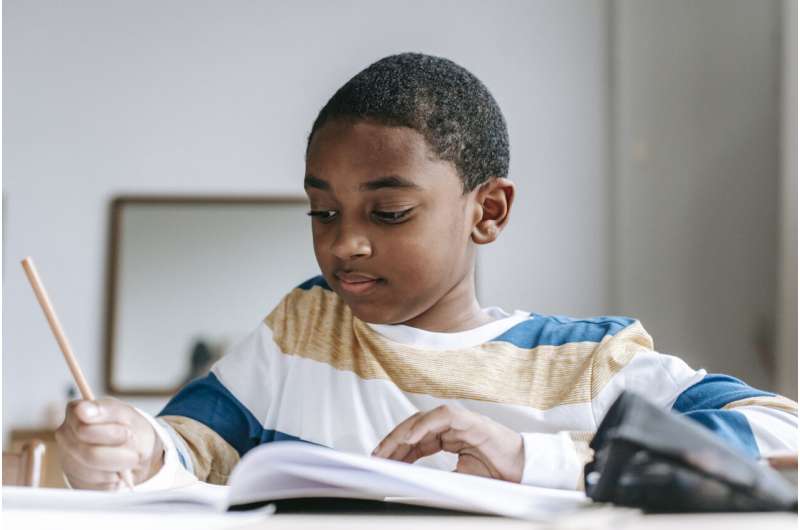The impact of school closures: Why reception year is so crucial to a child's development

The pandemic has held back the learning of the youngest schoolchildren. A recent report has found that children in year one in the 2020-2021 academic year—those who had missed significant periods of their reception year education during COVID-19 school closures—were three months behind the expected level in reading, and one month behind in math.
The report was produced by the National Foundation for Educational Research (NFER), an independent provider of educational research. It investigated the reading and mathematics skills of more than 12,000 children in primary years one and two in England during the 2020–21 academic year.
It found that while there were COVID-19 attainment gaps for both year one and year two pupils, this gap was greater for year one pupils and those from disadvantaged backgrounds. Year two pupils were two months behind in reading, but achieved above expected levels in math.
Crucial years
The first five years have a profound impact on the rest of a child's life. As part of this period, the reception year at school, when pupils turn five, is crucially important. This is recognized in guidance for schools.
Ofsted, the government office for educational standards, states that reading is at the heart of the curriculum for successful reception classes. Early mathematical concepts are another key element of teaching and learning in this foundation stage. Without consistent face-to-face teaching of literacy and math throughout the reception year, children could not be expected to meet the levels achieved by the same age group before the pandemic.
The standards that reception year teaching in England must meet are set out in the Early Years Foundation Stage framework. This framework recognizes the value of play as a tool for learning and ensures children in reception classes have access to playful learning opportunities. Educators within the Early Years Foundation Stage framework are required to engage in warm interactions, stimulate children's interests and provide routines for play and learning.
These fundamental elements of early learning and development are not emphasized in the same way in the National Curriculum, which is delivered from year one. Children often move from play-based approaches to more formal teaching methods.
Children who missed out on much of their reception year had less opportunity to build the necessary skills, knowledge and positive dispositions to learning to be ready for the shift in learning styles as they move into year one.
Barriers to reading
The NFER study found that the COVID-19 gap was greater in reading than math for the year one pupils. This may be linked to how much reading children were able to do at home during school closures.
Reading at home helps to get children reading for pleasure, which is important for children's personal development and academic success. But any existing challenges to reading at home may have been significantly increased by the pandemic.
For instance, a lack of books at home would have been exacerbated by limited or no access to school resources. Parents who may have struggled to find time for reading with children before the pandemic were also juggling home working with home schooling. They may have been balancing the needs of more than one child.
The reason that children were further ahead in math than reading may be because mathematical ideas and concepts were being explored more effectively at home during the school closures than reading.
Mathematical concepts that are covered in years one and two—such as counting, shapes and patterns—and mathematical language related to these areas can be explored and used naturally in routines and activities at home. This means that during school closures, foundations were potentially being built around mathematical concepts at home which could be further explored on the return to school.
The Department for Education is providing recovery packages to schools in England to help children to catch up on missed learning and development. While this is admirable, it is important to reflect on the constant pressure school communities, children, staff and parents, have been under since the pandemic hit.
Current year one pupils have not only missed out on a significant amount of their early schooling but many have had challenging experiences at home.
Additional expectations to catch up could add further stress. The way we teach children in year one, and beyond, should be carefully considered alongside the stage of development of each child.
Provided by The Conversation
This article is republished from The Conversation under a Creative Commons license. Read the original article.![]()




















